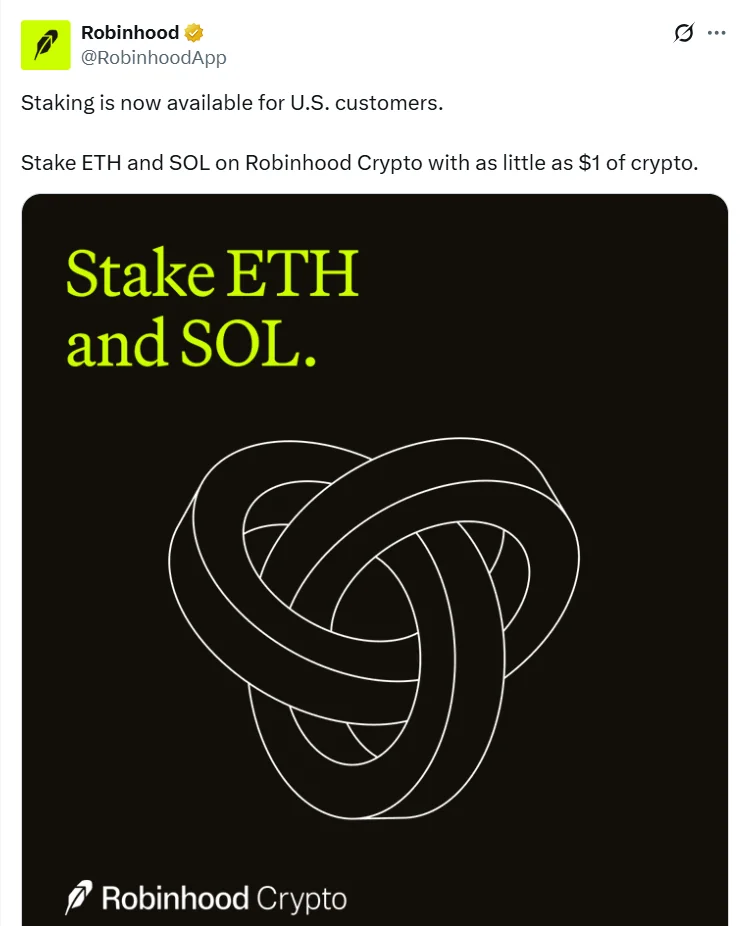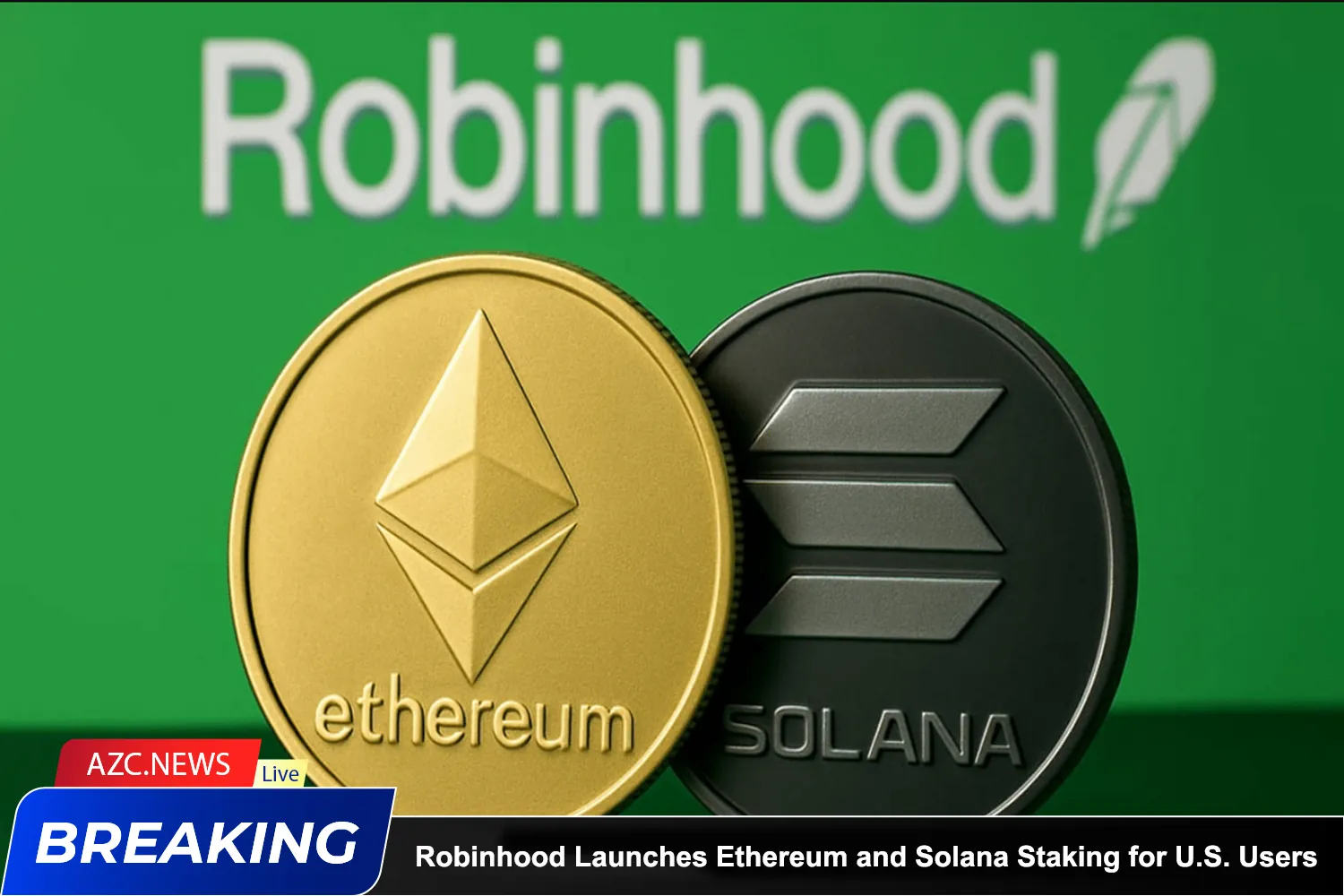Robinhood has officially expanded its crypto offerings by launching Ethereum (ETH) and Solana (SOL) staking services for users in the United States, with a minimum staking amount starting at just $1.
Previously available only to users in Europe, this feature now allows U.S. customers to directly stake ETH and SOL on the Robinhood platform and earn rewards from participating in blockchain networks.
How Robinhood Staking Works and What Users Can Earn
According to the announcement, users can begin staking with as little as $1. Staking involves locking up tokens to help validate transactions and secure the blockchain network.
For Ethereum staking, Robinhood uses a batch-processing method to pool smaller stakes together to meet the 32 ETH minimum required to become a validator. This allows even small investors to participate without needing to hold large amounts of ETH.
Staking rewards for Ethereum range from 50% to 100% of the official protocol rate, depending on how Robinhood aggregates user stakes to meet network requirements.
Similarly, Solana staking enables users to lock their SOL tokens and earn rewards. Robinhood takes care of all technical aspects, making the process accessible even to crypto beginners.
Crypto Expansion Amid Growing Market Interest

The decision to roll out staking services in the U.S. marks a significant step in Robinhood’s broader crypto expansion strategy. Previously, the company had held back from offering staking to American users due to regulatory uncertainty, particularly surrounding oversight from the SEC.
However, recent changes in the regulatory landscape have paved the way for Robinhood to activate this feature. At the same time, the company has announced plans to launch its own blockchain on Arbitrum, further signaling its long-term commitment to the crypto space.
With competitive fees and a user-friendly experience, Robinhood aims to stand out in the increasingly crowded staking market, where many platforms charge higher fees and offer less intuitive interfaces.
Restrictions and Future Plans
Despite the rollout, staking is not yet available in several states, including California, Maryland, New Jersey, New York, and Wisconsin. Users in these states will not be able to access ETH or SOL staking at this time.
Additionally, starting in October 2025, Robinhood Crypto will introduce a 25% commission on staking rewards, on top of fees charged by third-party staking providers. While this may seem high, the rate is consistent with industry standards for staking services.
Looking ahead, Robinhood is set on expanding its presence in the crypto financial services sector. Earlier this year, the company acquired Bitstamp and WonderFi, strengthening its global footprint in blockchain-based finance.






